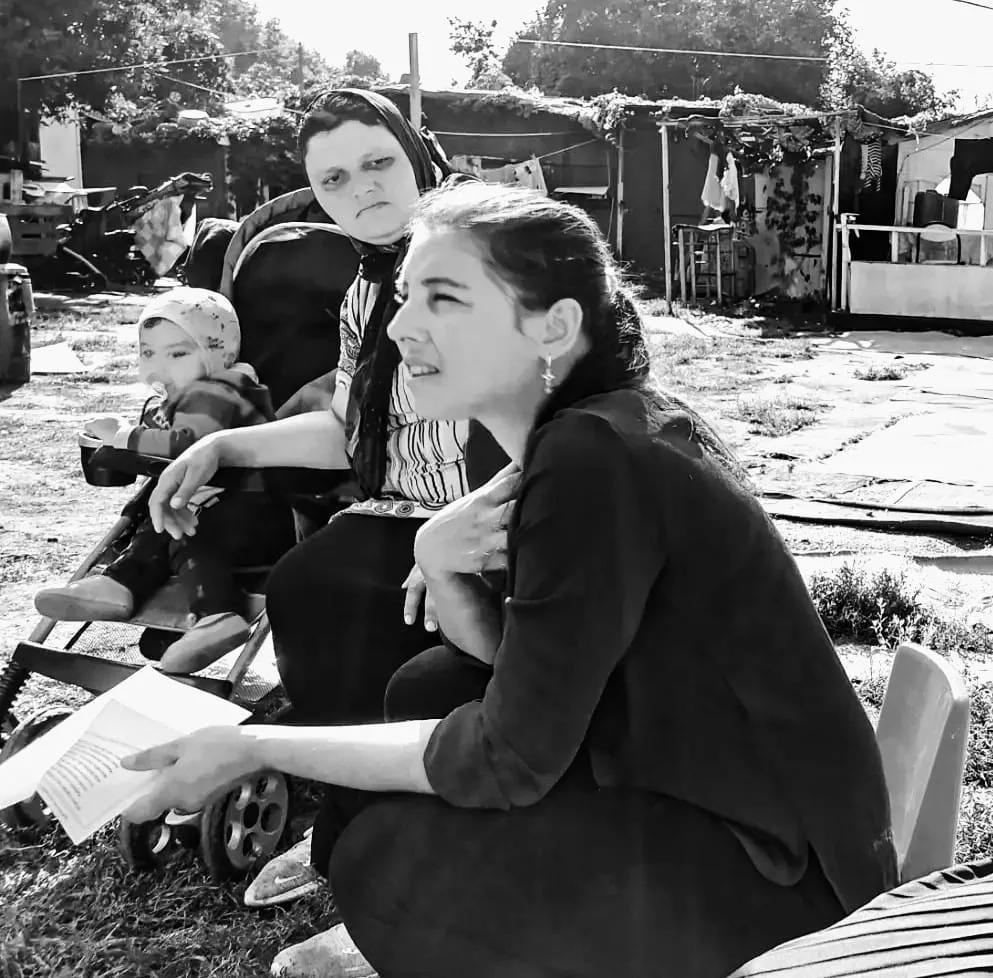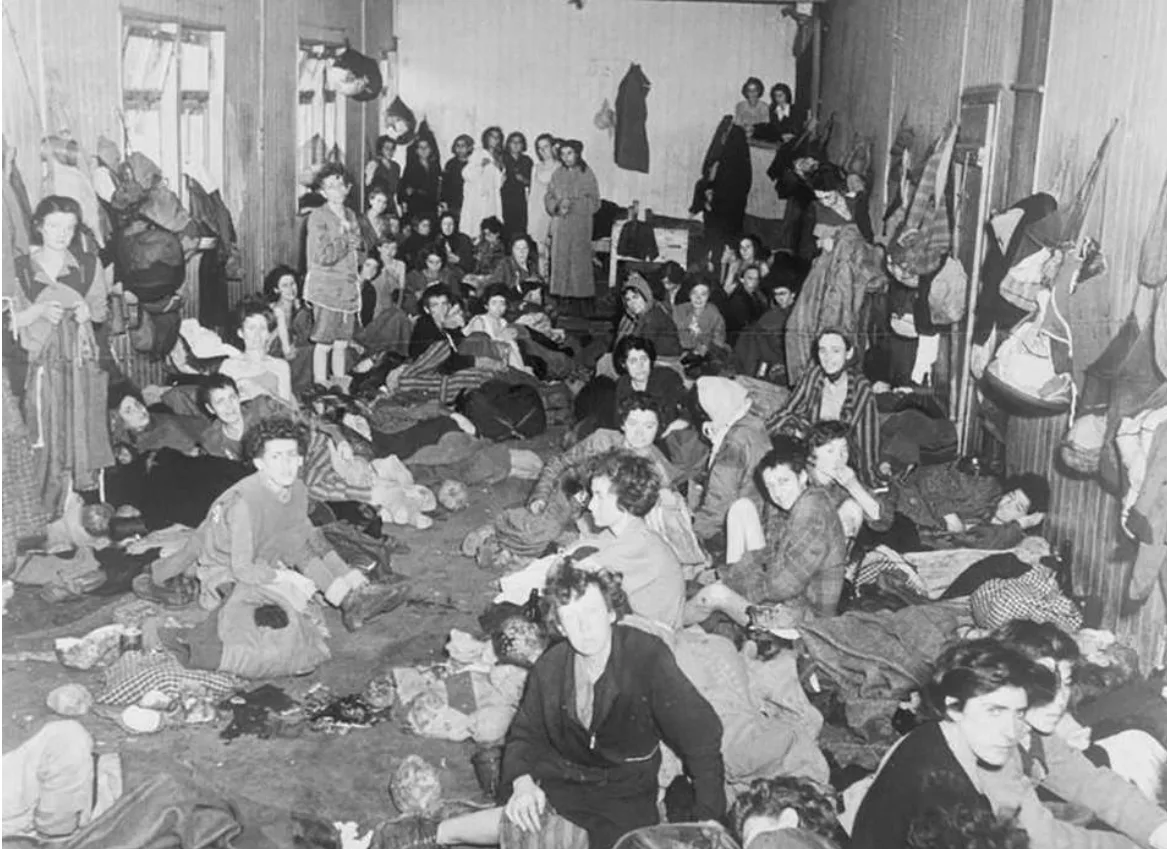Battle story
The battlefield is the hearts of the people
By Pierre Chopinaud
(Previously
It was not only the first defeat, but it might even be the end of the war! The mothers’ collective had been struck by surprise and knocked to the ground. Marina, in whose heart the other mothers had kindled faith, resented them: she had deluded her. And the others began to doubt their power. For if the judge had ruled in favor of the mayor this time, why wouldn’t he repeat this decision? It was undoubtedly the effect of the pressure coming from those in power. It was the obscure effect of the structure counterattacking. The mothers’ collective was stunned.
“
“This certainty must be communicated by an organizer to the leaders he trains, who in turn must communicate it to the people they will engage in action. But this certainty is always simulated: because uncertainty in politics is the only truth.“
Alisa, Mirela, Lucile, and Emmanuelle were on one knee. Not only had their opponent landed an unpredictable blow, but his blow was powerful. So, as organizer, my role was to urgently gather them together: like a trainer sitting next to a boxer in the corner of the ring after he’s been knocked out.
We had to understand what had happened, assess the damage, catch our breath, regain courage and hope, and adapt our strategy, decide what tactics the mothers’ group would use not only to get back up, but to fight again.
The group’s lawyer, Anina, was at their side. Perplexed, and also stunned. The judge’s decision, however you looked at it, was abnormal: why had he ruled in favor of the “wicked” mayor against Marina, the mother who was defending her child’s right to go to school?
The decision was contrary to morality, of course, to common sense, but above all, contrary to the law. I helped them analyze. Either the judge had decided under pressure from powerful people—was it our big bad wolf, the rector, who had appeared in the darkness of the woods to strike us down?—or he had made a serious legal error. We will never know for sure. No one ever sees clearly into the faces of power.
And uncertainty characterizes the context of all political action; it is the very nature of what happens on a battlefield to be uncertain. A strategist (every good leader is a strategist, and it is the organizer’s role to train them to be so) makes his plan perched atop his mountain, looking down at the battlefield, and before the battle has even begun. The least flawed plan reduces the element of chance and uncertainty in its unfolding: “If everything goes as planned, we will win.” Before engaging people in combat, one must be as close as possible to this certainty. Because this certainty, an organizer must communicate it to the leaders he trains, who in turn must communicate it to the people they will engage in action. But this certainty is always simulated: because uncertainty in politics is the only truth. However, as far as I’m concerned, I don’t engage people in an action if the plan developed doesn’t assure me that I have an 80% chance of winning. 20% is the place I give to chance.
“Strategic genius consists of dealing with the moment when chance arises: chance is the material of strategy, and there is something in it that is of the order of mystery or intuition.”
Because chance is chaos, chaos is the enemy of organization… But chance can also be opportunity.
No matter how close to perfection the plan or strategy may be, as soon as the members of the organization implement the thought-out tactics, as soon as they engage in actions on the battlefield, chance arises from all sides. However small the place it was given in the plan, the less important.
Strategic genius consists of dealing with the moment when chance arises: chance is the stuff of strategy, and there is something mysterious or intuitive about it.
This is why many great strategists throughout history attributed their decisions to omens or inspiration… But that’s another matter. This is how the act of strategic decision-making resembles the act of creation in art…
Be that as it may, Anina had an idea. And it was this idea that saved us.
Chance appeared on the battlefield in the guise of a constraint or an opportunity. She had the idea of transforming constraint, or misfortune, into luck, into opportunity.
The mothers’ collective was not only going to challenge the judge’s decision, but was also going to take the dispute to the highest court: the Council of State!
It’s a bit like if, in a game of chance, after losing 99% of their treasure, a player outbid their opponent by a disproportionate amount. It was a major bluff. We could lose everything or win everything.
W
“The risk was great, it was commensurate with the stakes, and commensurate with the chance. We were entering into a dance between chance and certainty.”
The risk was great, commensurate with the stakes, and commensurate with chance. We were entering a dance between chance and certainty. The Council of State’s decision could, if it upheld the wicked in its decision, result in the new law, the new rule. We would then not only lose the battle for Marina’s child, but it would be the tragic end of our story: injustice would prevail, the wicked would win, and the lives of the children we were fighting for would be thrown among the garbage to which the powerful in the department doomed them.
Even more serious: we were taking the risk of destroying the decree won long ago by the #EcolePourTous collective, which was the lever on which we had relied throughout our campaign.
Suffice it to say that going to the Council of State was taking the risk of everything collapsing. Not only would we lose our war, but retroactively lose the wars of those who came before us.
But it was also our luck: we felt we were reaching the end of our story: by accident, everything was coming together. The drama was about to unfold. It was a final face-off that the mothers’ collective was about to engage in. They had everything to gain and everything to lose: no calculation could guarantee us victory. So, each of us in the small group of leaders, Anina was the first to overcome the doubt that was agonizing her, and Mirela and Alisa announced to the members of the collective how they would get back up.
And in truth, like good leaders, they initially concealed the fact that they had been knocked down. For courage and hope are the two substances that, in the hearts of those who fight, win the war.
“This whole campaign was a game from the beginning, but a game whose ending can have dramatic consequences on reality.”
We had to put all the strength of the mothers’ collective into this final act, and to mobilize our forces, we had to be courageous. This required a bit of drama. This entire campaign had been a game from the beginning, but a game whose end could have dramatic consequences for reality.
By emerging from the woodwork without showing himself, the rector had committed a fatal error. He had tried to trap us, but the mothers’ collective was about to turn his trap. Because the final act of this story, of our David versus Goliath, was now the story of the innocent little girl Maria, versus the Minister. We were going to hold the latter accountable and tell the story. They say that leadership is about convincing others to take action despite uncertainty. That’s why one of the greatest challenges of action for justice, the most decisive of battles, the site of the great battle, is in the hearts of the people. The act that makes the difference is the one that transforms fear into courage in the hearts of the offended.
But alas, nothing is pure in this world. Before setting out to fight this last battle, the greatest, the one we perceived to be the grand finale—from which the women of the collective would emerge victorious or even more humiliated—they had gathered all their best weapons. And among these weapons, one was formidable.
A few weeks earlier, as part of another campaign I was organizing related to the issues faced by unaccompanied minors, we had made Raphaël Glucksman an ally. And he possessed a weapon that would be useful in the final act of the mothers’ collective’s story: his Instagram account.
We were going to use it. But first, we had to interest him in the cause. After a well-organized and prepared meeting, it was done. He would be part of the fight.
The tactic (the action) was as follows: on the day of the hearing at the Council of State, the mothers’ collective would launch a petition that would be circulated on the MP’s Instagram account and led by his team. The unjust story of Marina and her child humiliated by the wicked mayor of a commune in Seine-Saint-Denis would reach an unscheduled hearing that very day. And since the case would be brought before the Council of State, it would not only be the mayor’s responsibility that would be engaged, but that of the French government in the person of the Minister of Education. In this case: Pap Ndiaye. He would be the target of the public accusation, of the shame. He would not only become the villain of the story but would also, in the event of victory, be the person found guilty, responsible for this infamy.
“No words could give her courage. Fear and resignation had taken over: her fear of motherhood was the source of our sinking. She refused to act, and that was her most pressing right”.
Everything was ready. But nothing was possible without Marina taking action. The target was clear, the weapon loaded, all that was missing was her decision. Nothing was possible if she didn’t file a complaint. The entire outcome of the war depended on her hesitation between fear and courage. The decisive site of the battlefield was the secret of her heart.
Now, discouraged by the unexpected defeat: once again, she said “No!” She had once given her trust because Alisa and Mirela had given her hope. But she had lost. She no longer believed in the power of the mothers’ collective. It was in her consent that the final word of the story lay. It was less in the judge’s decision than in her heart that victory would be decided.
But nothing could be done: no words could restore her courage. Fear and resignation had taken over: her fear as a mother was the site of our shipwreck. She refused to act, and that was her most pressing right. From her point of view, she had nothing to lose except what she considered already lost, as it had been lost to her at birth: the dignity of her child.
(More in the next episode….)


